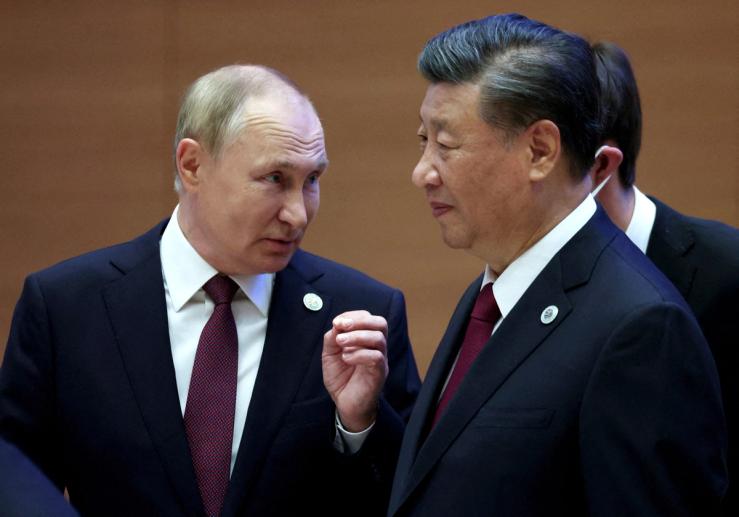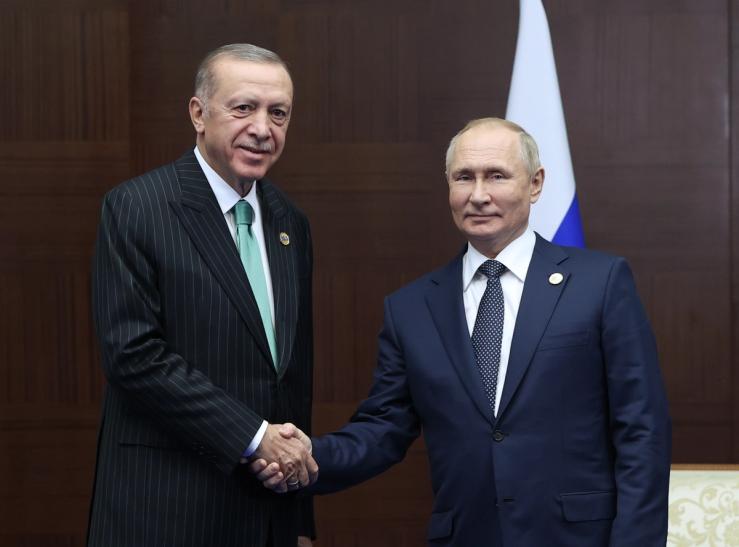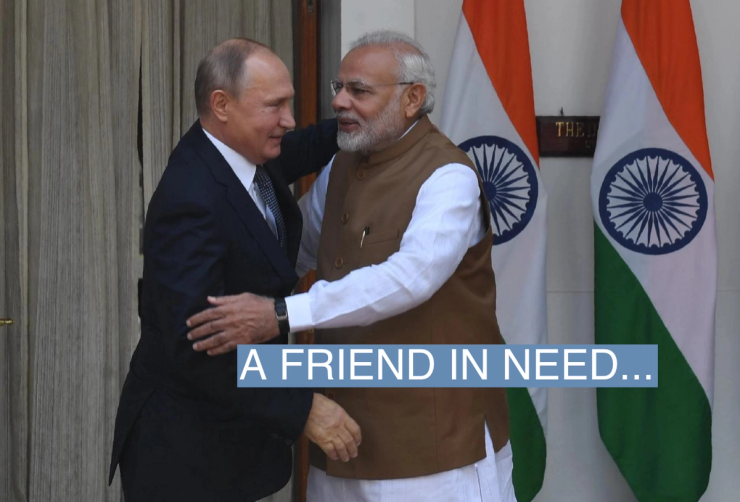The News
After the invasion of Ukraine last year, many countries in the West immediately turned against Russia, sanctioning Kremlin officials, banning imports of Russian goods, and restricting air space for the country’s aircraft.
But some other governments have maintained friendlier ties with Moscow. A day before the one-year anniversary of the invasion, six countries, including Belarus, Eritrea, Syria, Mali, and Nicaragua, voted against condemning Russia in a United Nations resolution. Another 32 countries, such as China, South Africa, and India, abstained from the vote.
Here’s why some of them have refused to join the West in an outright condemnation of Russia.
The View From China

China reiterated its neutral stance on the war in a 12-point position paper released Friday, and called for ceasing hostilities and resuming peace talks, as Western nations worry over Beijing and Moscow’s deepening ties.
China’s top diplomat met Russian President Vladimir Putin and other high-ranking Russian officials this week, saying he would strive to “strengthen and deepen the Sino-Russian friendship” regardless of the “how the international situation changes.”
His visit to Russia was widely seen as a precursor to a planned meeting between Putin and Chinese leader Xi Jinping reported to take place in the “coming months.” The West has remained skeptical of these visits and has warned China against supplying lethal aid to Putin.
However, China’s position paper on Ukraine said, “Conflict and war benefit no one,” adding that China will play a “constructive role” in helping the parties resume negotiations.
Historical ties are a major factor in Beijing’s continued friendliness with Moscow. An outright Russian defeat would significantly dwindle Moscow’s global influence, leaving China with no other major world power as an ally.
A new multi-country poll by the European Council of Foreign Relations found that 42% of respondents in China supported an immediate end to the war, even at the cost of Ukraine conceding land.
However, China benefits from a prolonged war thanks to the depletion of Western military resources. Some experts say this not only gives China future military superiority, but can be advantageous should Beijing decide to invade Taiwan in the future.
The View From India
India also technically remains neutral in the conflict, but its neutrality has caused diplomatic hurdles with Western countries that want the world’s largest democracy to formally denounce Putin.
While hosting G20 finance chiefs this week, Indian officials are refusing to use the term “war” and will avoid discussions on new Russian sanctions. Other Indian leaders have publicly said that global sanctions against Russia have contributed to net negative impacts.
Part of the reason India has maintained friendlier ties with Moscow is because of the country’s reliance on Russian military equipment and oil. Russia now provides 28% of oil to India.
The ECFR poll showed that 51% of Indians described Russia as an ally, and 54% wanted the war to end as soon as possible even if it meant Ukraine giving control of its areas to Russia.
The View From South Africa
South Africa’s government had to recently defend itself from criticism by the opposition party and Ukraine observers for hosting Russian war ships in its ports and conducting joint naval drills with China and Russia.
South Africa remains neutral in the conflict. But experts say that the country has refused to cut off military ties with Russia because of its historical ties to Moscow, particularly during the apartheid area when Soviet advisers guided South African youth activists joining groups like the African National Congress (ANC) and Pan Africanist Congress.
“By default, we are on the side of Russia. And to us, Ukraine [is] what we call a sell-out. It is selling out to the west,” Obey Mabena, a veteran of the ANC’s armed wing, told CNN last year.
South Africa is also a member of BRICS, an economic alliance that includes Brazil, Russia, India, and China. While Brazil voted to condemn Russia’s invasion of Ukraine during a UN vote last year, other BRICS members, including South Africa, abstained from the vote.
The View From Armenia
Armenia hosts two Russian military bases and more than 3,000 troops. The two countries are also prominent members of the Collective Security Treaty Organization (CSTO), a military alliance that includes Belarus, Kazakhstan, Kyrgyzstan, and Tajikistan.
The country has historically supported Russian foreign policy, including the 2014 annexation of Crimea.
However, Armenian-Russian relations have deteriorated in recent months with the military escalation of Armenia’s own conflict with Azerbaijan. Because of the Kremlin’s struggles in Ukraine, military resources to Armenia have dwindled, leading many Armenians to feel abandoned by Moscow.
The View From Turkey

As a NATO member, Turkey’s official stance has been to condemn the war, voting with 140 other countries on Thursday in the UN resolution against Russia.
Still, Turkey remains the closest NATO member to Moscow, refusing to impose sanctions or cancel flights to and from Russia. Some experts see this as Turkey’s attempt to to further increase its regional and global influence by assuming the role of a mediator. Putin and Turkish President Recep Tayyip Erdogan have been in constant communication since the invasion.
Turkey’s rocky economy also benefits by not completely cutting ties with Russia. The country has increased Russian oil imports since the invasion, and Erdogan has allowed for Turkey to act as a safe haven for Russian money, The Wall Street Journal reports. In the ECFR poll, 48% of respondents in Turkey supported an immediate end to the war.


